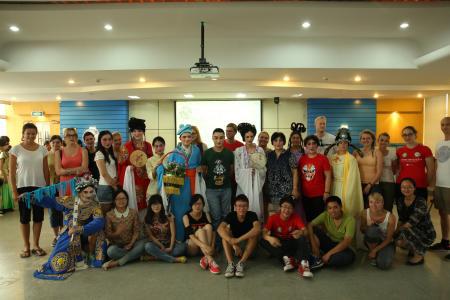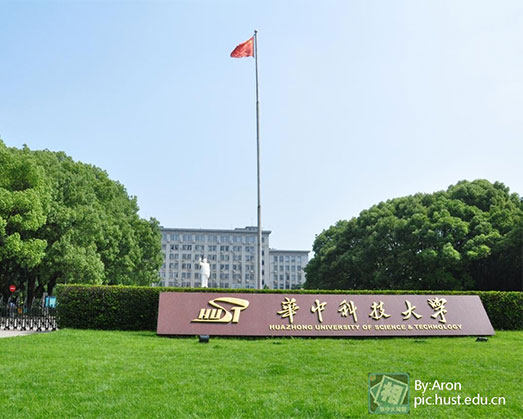2014 Chinese Bridge Summer Camp ended successfully
The 2014 Chinese Bridge Summer Camp sponsored by Jiangsu University and Graz University Confucius Institute for 21 Austrian students had successfully ended.
From July 9 to July 19, these Austrian students stayed in China. They first visited those famous places in Beijing and then on July 12 they arrived in Zhenjiang. They appreciated many traditional Chinese cultural things and visited the ancient scenic spots in Zhenjiang.
Quite a few social media, such as Xinhua News Agency, people.com.cn, reported this activity in detail.Wang Xiao has become the first undergraduate student of Department of Finances, School of Economics to publish a research paper. His extraordinary paper, supervised by Prof. Zhang Chuanguo, and titled “The impacts of global oil price shocks on China's fundamental industries,” was isWang Xiao has become the first undergraduate student of Department of Finances, School of Economics to publish a research paper. His extraordinary paper, supervised by Prof. Zhang Chuanguo, and titled “The impacts of global oil price shocks on China's fundamental industries,” was issued in Energy Policy, one of the best international journals in the world, cited by both SCI and SSCI with a high impact factor of 3.382.
In this paper, Wang Xiao describes the extreme price movements, called jumps, existing in the oil markets and how jump behavior has affected China׳s commodity markets. The result suggests that asymmetric effects of oil price shocks do exist in four fundamental industries: grains, metals, petrochemicals and oil fats, and the negative oil price shocks have stronger influences on the four markets in China.
Wang Xiao attributes his success to the ferment of ideas in the School of Economics. The School has introduced reforms, for example, launching a faculty exchange program of scholars from universities in Europe, America and Australia, while organizing a series of high-level international conferences. In these demanding, fascinating and fruitful circumstances, he worked hard. His interest in economics grew sharper and sharper. His keen interest in economics drove him to improve his research capacity; he chose to study econometrics and statistics in greater depth and to he developed the habit of reading research journals written in English in addition to his regular curriculum.sued in Energy Policy, one of the best international journals in the world, cited by both SCI and SSCI with a high impact factor of 3.382.
In this paper, Wang Xiao describes the extreme price movements, called jumps, existing in the oil markets and how jump behavior has affected China׳s commodity markets. The result suggests that asymmetric effects of oil price shocks do exist in four fundamental industries: grains, metals, petrochemicals and oil fats, and the negative oil price shocks have stronger influences on the four markets in China.
Wang Xiao attributes his success to the ferment of ideas in the School of Economics. The School has introduced reforms, for example, launching a faculty exchange program of scholars from universities in Europe, America and Australia, while organizing a series of high-level international conferences. In these demanding, fascinating and fruitful circumstances, he worked hard. His interest in economics grew sharper and sharper. His keen interest in economics drove him to improve his research capacity; he chose to study econometrics and statistics in greater depth and to he developed the habit of reading research journals written in English in addition to his regular curriculum.



News&Opinion
 more
more- Islamic school in Xinjiang to double enrollment
- Stop Blaming Colleges for Society's Problems The...
- China's new code of conduct for students trigger...
- Chengdu education goes global with more int’l co...
- Special needs education spending increased in Ch...
- China Academy of Translation launched in Beijing
- Foreign Teacher Training Institutions: The Only ...
- 298 people on board crashed Malaysian flight, 15...
Policy&Laws
Guilin to offer 72-hour visa-free stays
GUILIN - The city of Guilin in South China's Guangxi Zhuang autonomo...
further strengthening the visa regulation of int...
After the promulgation of new Immigration Control Act in China, Entr...
New Regulations for Visa
Attention Dear all, The laws and regulations for visa (residenc...





 print
print  email
email  Favorite
Favorite  Transtlate
Transtlate 







